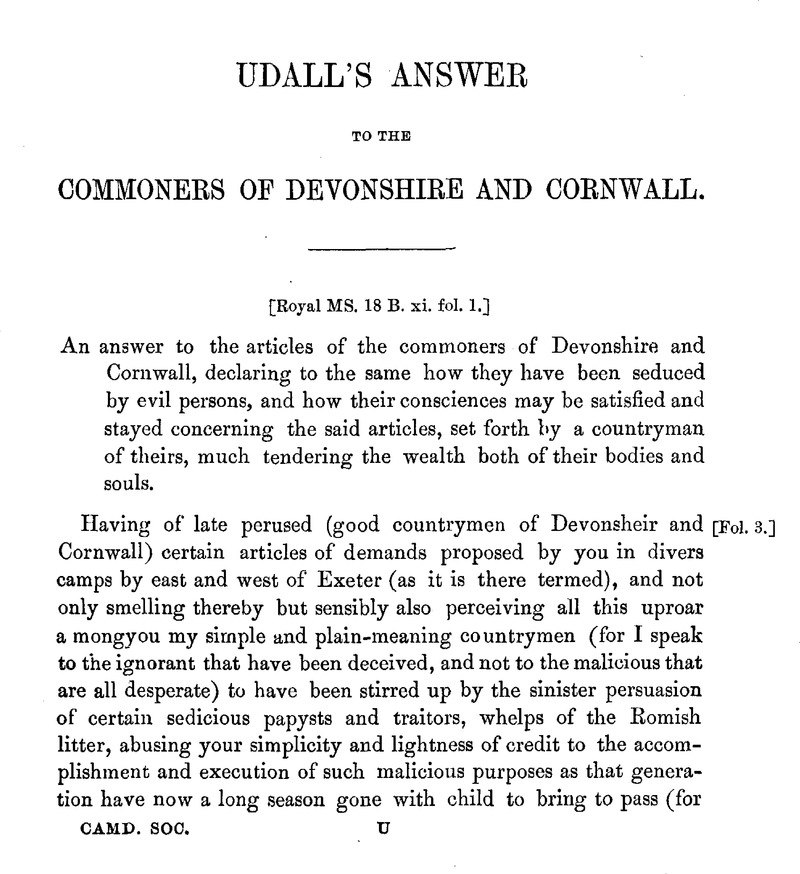No CrossRef data available.
Article contents
Udall's Answer to the Commoners of Devonshire and Cornwall
Published online by Cambridge University Press: 24 December 2009
Abstract

- Type
- Troubles Connected with the Prayer Book of 1549
- Information
- Camden New Series , Volume 37: Troubles Connected with the Prayer Book of 1549 , December 1884 , pp. 141 - 193
- Copyright
- Copyright © Royal Historical Society 1884
References
page 142 note a 1 Cor. xii. 26. The translation is probably Udall's own.
page 143 note a 2 Sam. vi. 3–8.
page 148 note a In the King's answer to the rebels, dated July 8, these enemies are thus specified: “What greater evill could ye commit, than even now, when our forren enimie in Scotlandd and upon the sea seeketh to invade us to doo our realme dishonour, than to arise in this maner against our law, to provoke our wrath, to aske our vengeance, and to give us an occasion to spend that force upon you which we meant to bestow upon our enimies, to begin to slaie you with that sword that we drew forth against Scots and other enimies, to make a conquest of our owne people, which otherwise should have beene of the whole realme of Scotland.”—Holinshead, p. 1006.
page 149 note a Gal. iii. 1–3.
page 149 note b Gal. v. 7.
page 149 note c Gal. i. 6.
page 153 note a There is no notice of this point in the King's answer of July 8, 1549.
page 156 note a Either some word as been omitted here, or the word and is superfluous.
page 158 note a Esti non frequentius, salterm in anno ter laici homines communicent (nisi forte, quis majoribus quibuslibet criminibus impediatur) in Pascha videlicet ct Pentecoste et Natali Domini.—De Consecr. Distinct. II. cap. 16.
page 159 note a There is here an apparently accidental omission of a sentence, viz.:
Neuter enim eornm exhonorat corpus et sanguinem Domini, si saluberrimum sacramentum certatim honorare contendunt.
The rest of the sentence is as follows :
Ambo honorificantes Salvatorem diverso et quasi contrario modo, ambo peccatis miseri, ambo misericordiam consecuti. Ad hoc valet quod manna secundum propriam voluntatem in ore cujusque sapiebat.
page 176 note a Probably a mistake of copying for whom.
page 182 note a Probably a mistake of copying for loyal.
page 185 note a This last is an article additional to the fifteen which were answered by Cranmer.


